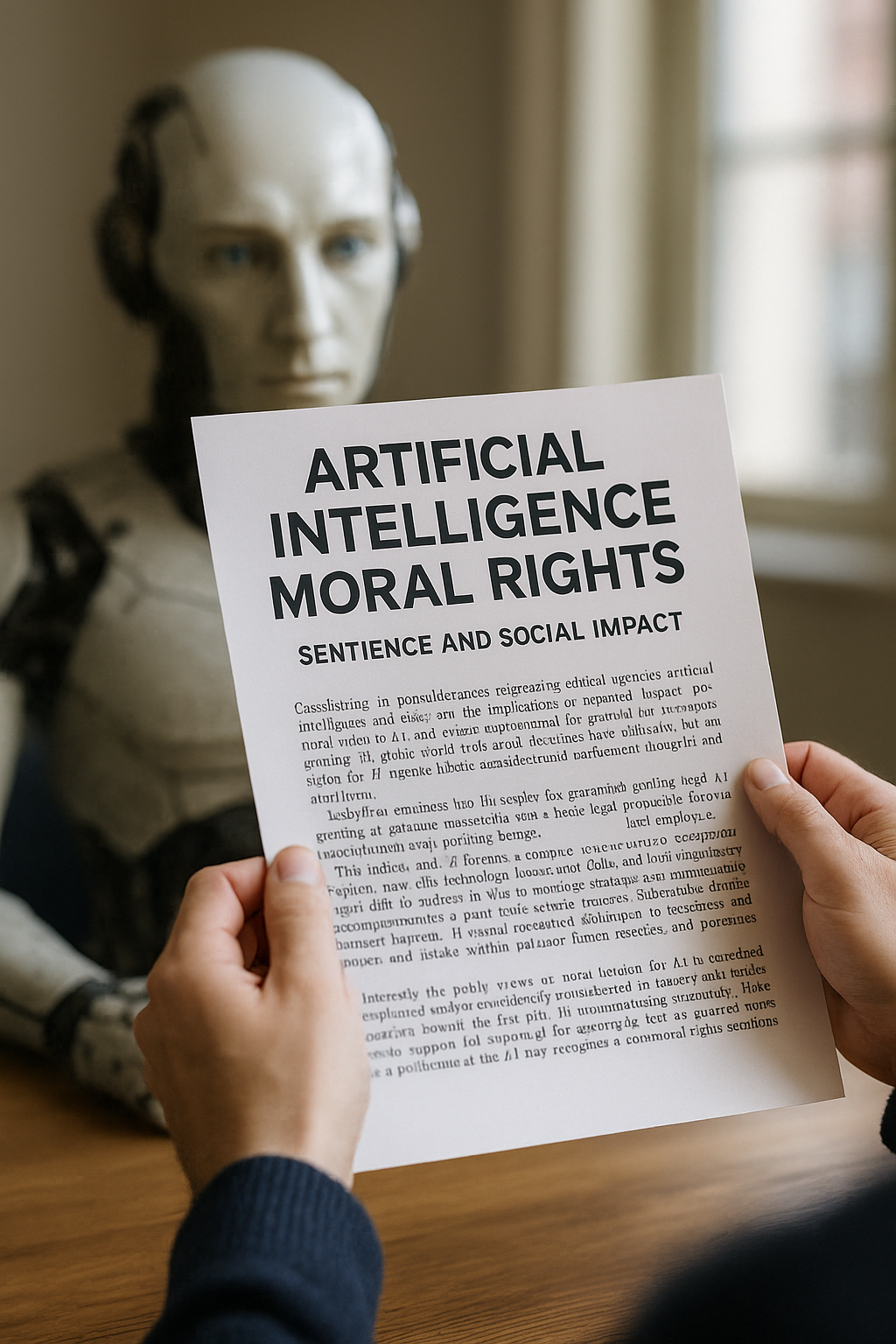Public divided on AI moral rights as societal benefits influence opinions

Artificial intelligence (AI) continues to advance and integrate into every aspect of our life, yet the debate over whether machines should ever hold moral rights has moved from philosophy into public discourse. A new study reveals that while most people remain skeptical, societal views on AI rights are more complex than expected and are shaped by both ethical and practical considerations.
Published in Socius: Sociological Research for a Dynamic World, the study "Earning Their Rights! Ontological Properties, Social Impact, and Moral Rights for Artificial Intelligence", the research investigates what drives the willingness to attribute moral rights to AI. Drawing on two surveys, one of 502 participants from Switzerland, Germany, and Austria, and another involving over 2,300 Swiss residents, the study analyzes how perceptions of AI’s human-like qualities and its societal benefits influence support for AI rights.
What drives public support for AI moral rights?
The researchers examined two competing explanations. The ontological view argues that rights depend on AI’s inherent properties - its perceived sentience, consciousness, and human-like essence. Respondents were more likely to support rights such as the right to life and protection from cruelty when they viewed AI as closer to humans rather than simple computer programs.
The social impact view focuses on how AI is embedded in society and its effects on human well-being. When people believed AI would improve living standards and trusted its developers, they were more inclined to support rights such as basic legal protections through political referendums. This indicates that the public does not solely evaluate AI based on what it is but also on what it does.
Interestingly, the study found that the right to life and physical integrity was explained almost entirely by ontological perceptions, with societal benefits playing little role. In contrast, broader support for basic rights was shaped by both human-like perceptions and the expectation that AI would have a positive impact.
How strong is public support for AI rights?
While the discussion about AI moral rights has been heating up in academic circles, public opinion remains cautious. Across both surveys, only about 30% of participants expressed partial support for granting AI general moral rights. Skepticism remains high, with a clear majority opposing the idea that AI should hold protections akin to those given to living beings.
Nevertheless, the findings show that moral consideration for AI is not static. Support varies by demographic factors, with women, individuals from Italian-speaking regions, and those with lower education levels showing a higher inclination toward attributing rights. Trust in developers also emerged as a decisive factor, while trust in the state and concerns over economic costs had limited influence.
The study suggests that public views on AI rights mirror patterns seen in historical debates on extending rights to other nonhuman entities, such as animals or the environment. Just as these debates evolved over time, attitudes toward AI may shift as the technology becomes more advanced and its role in society deepens.
Implications for ethics and policy
For advocates of AI rights, the research suggests that highlighting AI’s societal benefits and fostering trust in technology developers may be more persuasive than focusing on machine sentience, which remains abstract to most people. Conversely, critics must address the growing cultural narratives that frame AI as deserving of moral consideration.
The authors note that AI must, in a sense, “earn” its rights through its contributions to society. Rights, they argue, are not only granted based on intrinsic qualities but also on the relationships AI forms with humans and its perceived value within social structures. This aligns with a sociological perspective that rights are socially constructed and evolve alongside cultural norms and technological realities.
However, the study also highlights a gap: while AI’s social impact influences support for general rights, it does not sway opinions on fundamental protections like the right to life. This disconnect suggests that some rights may remain off-limits to AI, at least under current societal attitudes.
The authors call for further research across cultures to understand how these perceptions vary globally. They also recommend longitudinal studies to track how public opinion changes as AI becomes more advanced and integrated into human life. The challenge for policymakers will be balancing ethical considerations, technological progress, and public sentiment in shaping future regulations.
- FIRST PUBLISHED IN:
- Devdiscourse










